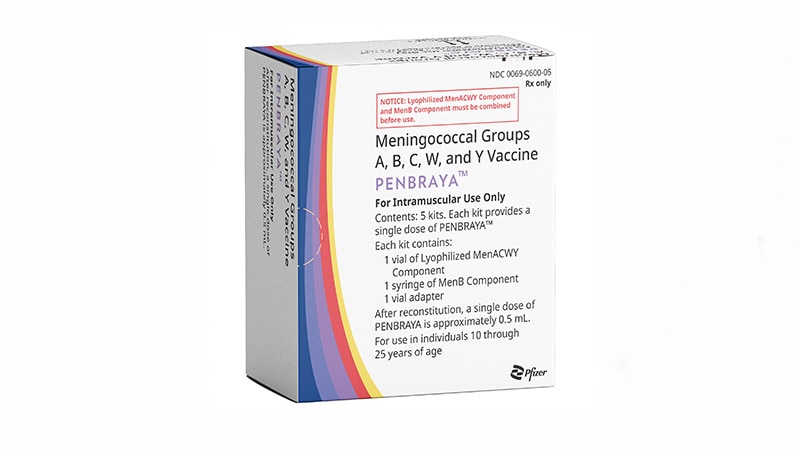Optimal Timing for Meningococcal Disease Vaccination
Core Concepts
Vaccination timing is crucial for preventing meningococcal disease and improving coverage.
Abstract
The article discusses the importance of timing for the new pentavalent vaccine against meningococcal disease, covering all major serogroups. It highlights the impact of vaccines on reducing disease rates, the introduction of the quadrivalent vaccine, the challenges with the serogroup B vaccine, and the potential benefits of a two-dose pentavalent vaccine schedule. Key insights include:
Pentavalent vaccine approval for all major serogroups
Impact of vaccines on disease rates
Success of the quadrivalent vaccine
Challenges with the serogroup B vaccine
Benefits of a two-dose pentavalent vaccine schedule
Timing the New Meningococcal Disease Shots
Stats
Before the introduction of vaccines in 2005, the incidence of disease in the United States ranged from 0.5-1.1 cases per 100,000 people, with ≥ 10% of cases being fatal.
Between 2006 and 2017, the estimated incidence among 11- to 15-year-olds dropped by > 26% each year.
For those aged 16-22 years, the incidence dropped even further by > 35% per year between 2011 and 2017 after the booster was introduced.
Quotes
"Clinical features of invasive meningococcal disease, coupled with its unpredictable epidemiology, suggest that vaccination is the best strategy for preventing associated adverse outcomes."
"Use of pentavalent vaccines yields the potential to build on the success of the incumbent program, raising B vaccination coverage by simplifying existing recommendations and decreasing the number of injections required."
Key Insights Distilled From
by Brian at www.medscape.com 03-14-2024
https://www.medscape.com/viewarticle/timing-new-meningitis-shots-serogroup-top-5s-2024a10004tf
Deeper Inquiries
How can the challenges with the serogroup B vaccine be addressed effectively?
The challenges with the serogroup B vaccine can be effectively addressed through several strategies. Firstly, increasing public awareness about the importance of vaccination against serogroup B meningococcal disease is crucial. This can be achieved through targeted educational campaigns that highlight the risks associated with the disease and the benefits of vaccination. Secondly, healthcare providers should actively recommend and offer the serogroup B vaccine to eligible individuals, emphasizing its importance in preventing meningococcal infections. Additionally, integrating the serogroup B vaccine into routine vaccination schedules can help improve uptake and coverage rates, ensuring more individuals are protected against this particular serogroup.
What are the potential long-term implications of the new pentavalent vaccine on meningococcal disease rates?
The introduction of the new pentavalent vaccine against all five major serogroups of meningococcal disease could have significant long-term implications on disease rates. By providing broader protection against multiple serogroups, the pentavalent vaccine has the potential to further reduce the incidence of meningococcal disease among adolescents and young adults. This comprehensive vaccine coverage may lead to a decrease in overall disease burden, including fewer cases of invasive meningococcal disease and related complications. Additionally, simplifying the vaccination schedule and reducing the number of required doses through the pentavalent vaccine could improve vaccination compliance and coverage rates, ultimately contributing to a sustained decline in meningococcal disease rates over time.
How can public awareness and education be improved to increase vaccination coverage for meningococcal disease?
Improving public awareness and education to increase vaccination coverage for meningococcal disease requires a multi-faceted approach. Firstly, leveraging various communication channels, such as social media, public service announcements, and community outreach programs, can help disseminate accurate information about the importance of meningococcal vaccination. Engaging healthcare providers to actively discuss and recommend vaccination during routine medical visits can also enhance awareness and encourage individuals to get vaccinated. Furthermore, partnering with schools, universities, and workplaces to promote vaccination campaigns and offer convenient access to vaccines can help reach a broader audience. Tailoring educational materials to address specific concerns or misconceptions about meningococcal disease and vaccines can further improve understanding and acceptance of vaccination among the public. Ultimately, a comprehensive and coordinated effort involving healthcare professionals, public health agencies, and community stakeholders is essential to effectively increase vaccination coverage for meningococcal disease.
0
More on Healthcare
